Builder unhappy with bank draw terms
anisaer
6 years ago
Featured Answer
Sort by:Oldest
Comments (63)
lookintomyeyes83
6 years agoUser
6 years agolast modified: 6 years agoRelated Discussions
self-financing build while bank loan processes?
Comments (27)Holly, MFatt: The land is being sold by a third party, not the builder. The P&S is conditional on all the build elements coming together. It's a strange process. To buy the land, we need to be able to afford the house we want on it. (there's covenants stipulating the size/type of house that can be built. We couldn't build small then expand, for instance.) To know the cost of the build, we need a builders quote. But first the builder needs plans. Have to design plans with an architect. Pay the architect, submit to builder(s), recuperate from sticker shock, go back to architect and redesign, get another quote. When that's settled, need the bank to spend a couple months studying the documents from the architect and builder. Sigh. If I just had an extra half million dollars or so lying around, this could be much easier. Story of my life... ;) Anyway, our plan is (or was, depending on whether the bank allows it) is to file the loan application, and in parallel to it processing for us to close on the land, then pay out of pocket for the site work and foundation. Hopefully we can find someone at the bank who doesn't think this is an unusual occurrence....See MoreConstruction Loan, Bank says No way!
Comments (14)If I read your message correctly he may have offered you a better option than a construction loan. You stated that you need $100K to build given your other assets. He offered to loan you half the value of what state is an over $200K property you own free and clear. So if you take his loan you get a $100K check to put in the bank and pay your subs as you go. No bank draws to deal with, no bank inspectors to wait on. You also get to take advantage of cash discounts and incentivize your subs with quick payments. At the end of the build you would only need to refi if you wanted to pull equity back out to do other things. Otherwise you just pay off the $100K loan according to its terms. if you did need to refi I'm guessing the closing costs would be worth it, given the flexibility you would buy for yourself by avoiding a construction loan. I did my build similarly, although I was not positioned quite so favorably as you. I had enough cash along with a HELOC to build my new house on my property. It was very nice not dealing with a construction loan. At the end of the build I refi-ed and paid off the HELOC and the original first mortgage. The subs loved it when I pulled my checkbook out on the spot and handed them their money. Never underestimate the power of quickly paying quality subs for a job well done. You should reconsider what he offered. It may be a very smart way to go....See MoreBuilder demanding 9 th draw
Comments (20)You may have to go to the State office that licenses the contractors to see if there are any law suits against him along with complaints. Another thing to check on, it make sure, and get it in writing along with paid recipts from the sub contractors on the job. Do it NOW!! or you might find yourself paying for the materials twice. We did that with our building. DH was acting GC, but NOTHING came on the property without paid recipts from the business the materical were bought from. Don't go any further until you get some good legal advice. Meet the contractor with the bank manager with your paper work and get everything straightened out NOW....See MoreBuilder's Contract
Comments (11)One more thought about a Shared Savings clause. I might be concerned there would be some potential for abuse there. Theoretically, it would encourage the builder to save money along the way. However, it could also cause a builder to set an artificially high GMP so he would be ensured some shared savings bonus without working very hard. It might also encourage an unscrupulous builder to cut corners (use a cheaper electrician rather than the better but slightly more expensive one, etc.). This "always go cheaper" mentality could cause some problems down the road. We decided that we wanted to use the most reasonably priced but high quality supplier, rather than always going for the cheapest, and our builder has a few trades that he uses over and over because they are very price competitive, good, and show up on time. Also, the GMP is necessarily inflated already, because there has to be some wiggle room if concrete prices go up, OSB goes up, roofing materials go up - you get the idea! It can also vary between suppliers. For example, when putting together his bid, our builder called two of his regular concrete suppliers. One was significantly less a yard than the other, which made a huge difference because we have a large foundation as well as a raised terrace and screened porch with masonry columns - so lots of concrete. Just something to think about!...See Morejust_janni
6 years agoVirgil Carter Fine Art
6 years agolast modified: 6 years agosusha
6 years agoBT
6 years agoGodswood
6 years agohomechef59
6 years agoanisaer
6 years agoGodswood
6 years agoJoseph Corlett, LLC
6 years agoksc36
6 years agosusha
6 years agoksc36
6 years agodbrad
6 years agocpartist
6 years agocpartist
6 years agodbrad
6 years agoanisaer
6 years agokudzu9
6 years agobry911
6 years agolast modified: 6 years agoJim1405
6 years agoUser
6 years agoGargamel
6 years agokudzu9
6 years agoUser
6 years agosusha
6 years agoDenita
6 years agolast modified: 6 years agorobin0919
6 years agoDana
6 years agomadpebs87
6 years agohomechef59
6 years agoCharles Ross Homes
6 years agoopaone
6 years agolast modified: 6 years agocpartist
6 years agoopaone
6 years agoDenita
6 years agolast modified: 6 years agobry911
6 years agolast modified: 6 years agokudzu9
6 years agoopaone
6 years agolast modified: 6 years agokudzu9
6 years agobry911
6 years agolast modified: 6 years agoopaone
6 years agokudzu9
6 years agocpartist
6 years agofreeoscar
6 years agoUser
6 years agolast modified: 6 years agokudzu9
6 years agoRyan Snow
6 years ago
Related Stories
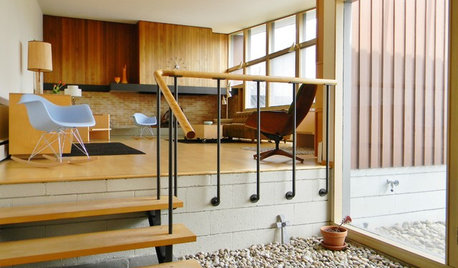
HOUZZ TOURSMy Houzz: Original Drawings Guide a Midcentury Gem's Reinvention
Architect's spec book in hand, a Washington couple lovingly re-creates their midcentury home with handmade furniture and thoughtful details
Full Story
DECORATING GUIDES7 Tips to Sell Your Home Faster to a Younger Buyer
Draw today's home buyers by appealing to their tastes, with these guidelines from an expert decorator
Full Story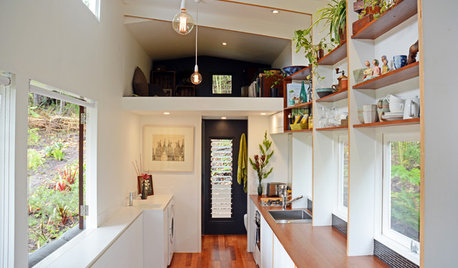
SMALL HOMESTiny Houzz: A Retractable Bed and Double-Duty Furniture Make It Work
Architecture graduates work with a builder to create a stylish tiny house with an efficient layout and a roomy feel
Full Story
KITCHEN DESIGNThe Kitchen Storage Space That Hides at Floor Level
Cabinet toe kicks can cleverly house a bank of wide drawers — or be dressed up to add a flourish to your kitchen design
Full Story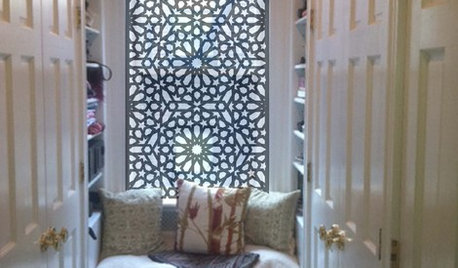
PATTERN12 Great Decorative Alternatives to Curtains
Filter light and views while drawing the eye by dressing windows in specialty glass, artistic screens or snazzy shades
Full Story
REMODELING GUIDES10 Features That May Be Missing From Your Plan
Pay attention to the details on these items to get exactly what you want while staying within budget
Full Story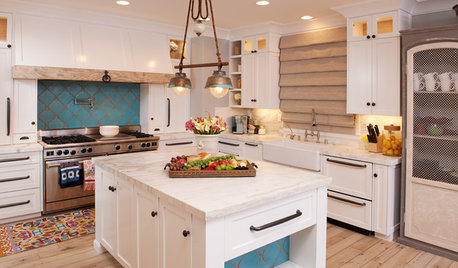
KITCHEN DESIGNKitchen of the Week: Turquoise Tile and a Dining Nook for 16
Entertaining is a piece of cake in this remodeled beauty with an extra-large stove and seating for a crowd
Full Story
KITCHEN DESIGNStandouts From the 2014 Kitchen & Bath Industry Show
Check out the latest and greatest in sinks, ovens, countertop materials and more
Full Story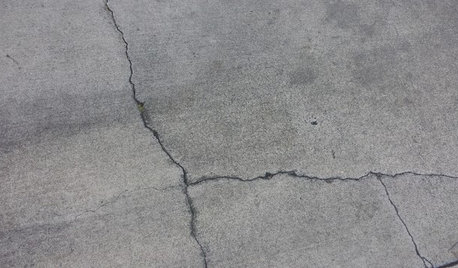
CONCRETEWhy Concrete Wants to Crack
We look at the reasons concrete has a tendency to crack — and what you can do to help control it
Full Story
REMODELING GUIDESSo You Want to Build: 7 Steps to Creating a New Home
Get the house you envision — and even enjoy the process — by following this architect's guide to building a new home
Full StorySponsored
Central Ohio's Trusted Home Remodeler Specializing in Kitchens & Baths






anisaerOriginal Author